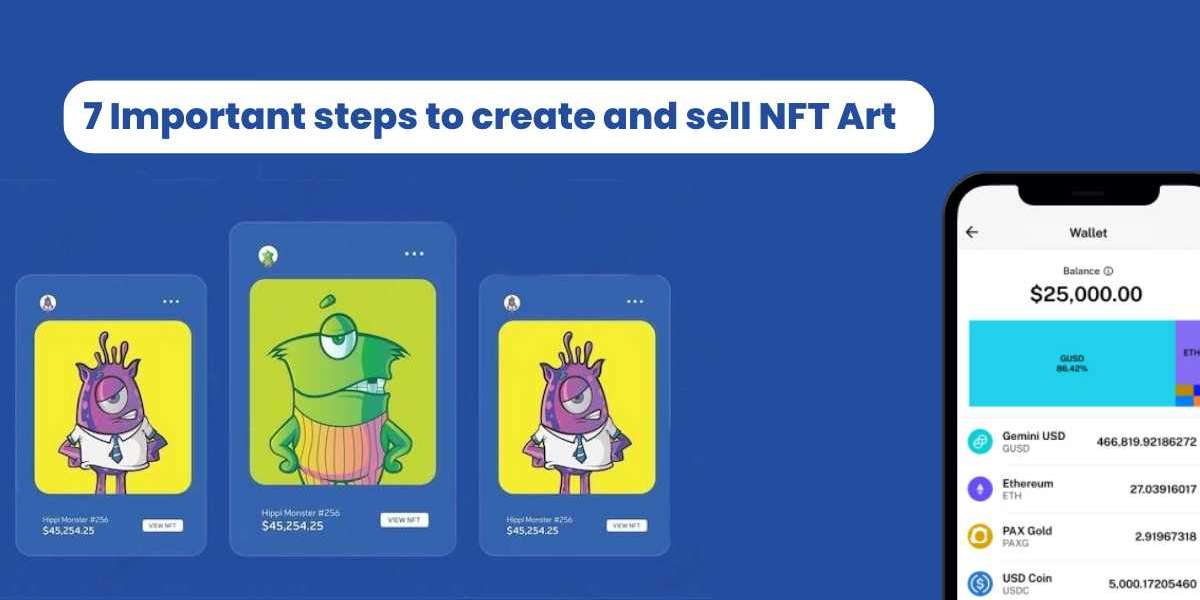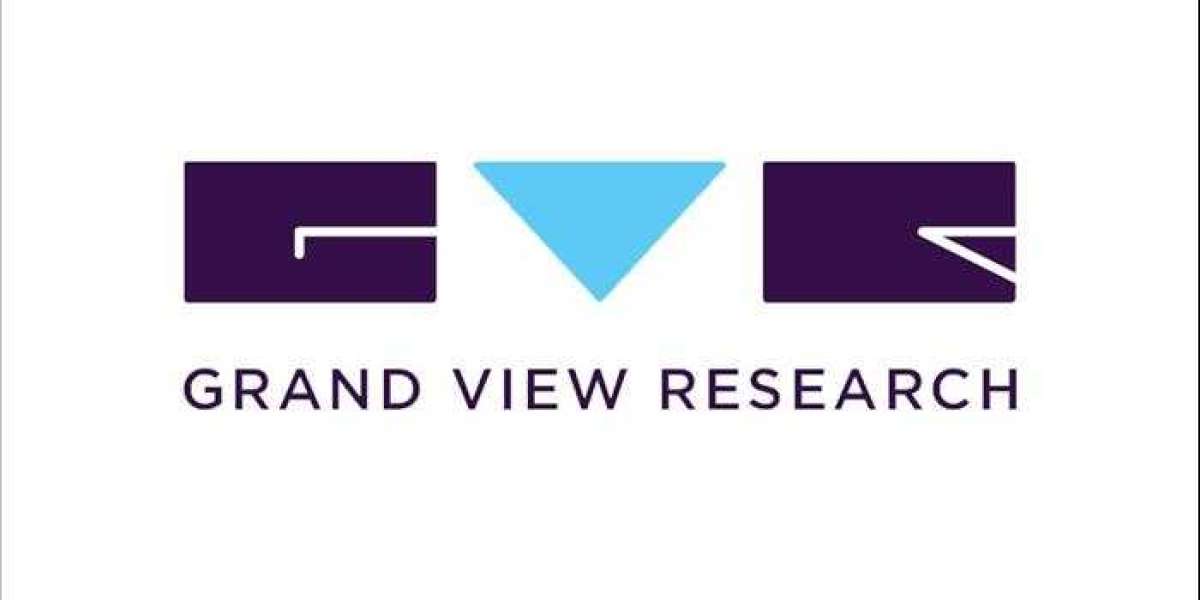Before we look into the topic...First we have to know what is NFT
Non-Fungible Tokens (NFTs), in its simplest form, are digital assets kept on a blockchain. Unlike traditional cryptocurrencies--which are often traded on decentralized exchanges--NFTs represent ownership of specific items, such as digital art, in-game items, music, and even real-world assets like land or property.
Are you prepared to begin producing your own NFT art? Start by following this step-by-step instruction manual:
- Choose a concept :
Prior to anything else, you must decide on a theme for your art. To find the right style for your idea, research popular NFT art styles. There are many options: vector art, cartoons and 3D characters, realistic art, freestyle pieces, vector art.
Remember that the crypto wallet and NFT marketplace you use will be affected by what you create. If you wish to create a 3D model using blockchain technology, you will need to use a marketplace that accepts 3D files.
To get started with your NFT collection, you can check out Project Catalog(tm), NFT Services.
- Select your blockchain :
Next, you will need to choose a blockchain technology to create and develop your NFT. This is an important step because it affects how customers interact with your artwork.
Blockchains-which are used to create cryptocurrencies-are incorruptible and can be distributed across a wide range of networks. The blockchain technology is transparent and secure because all data stored on it can be verified by computers on every network.
There are many platforms available for NFT development.
- Bitcoin
- Ethereum
- Tezos
- Solana
- Polygon
- D-Chain Compatible Network
- Binance Smart Chain
Make sure you do your research and choose the one that best suits your project. Transaction speed, security, functionality, transaction cost, and scalability are all important factors to consider when evaluating each type of blockchain.
- Create a digital wallet :
You will need to create a digital wallet before you can create NFTs. Your private and public keys are stored in a digital wallet, which is similar to a bank account for cryptocurrency. These keys allow you to access your NFTs.
There are two types of accounts that you should consider.
- Self-custody wallets can be considered the most secure type of wallet account, since users have full control over their private keys.
- Custodial wallets are operated through a third-party.
Here are some of the top crypto wallets to store and exchange NFTs and other digital assets.
- Math wallet - This wallet supports over 70 blockchains. You can also access multiple marketplaces to buy your NFTs with the utility token it provides.
- Coinbase Wallet - The wallet allows holders to use cryptocurrency such as Ethereum (ETH), to purchase and sell NFTs. It is accessible via a mobile app.
- Trust wallet - This wallet is part of Binance Smart Chain and uses Ethereum/Ether cryptocurrency to store and sell NFTs and game assets.
- Metamask Wallet - You can use this app to buy or sell NFTs on the Ethereum blockchain and other markets.
- D-wallet - allows you to buy crypto assets such as Ethereum, Matic, Solana, and so on. It allows you to buy 80+ cryptocurrencies directly into your D-wallet. It is available in both browser extensions in Firefox, Chrome, Opera, and Brave as well as in the form of a mobile application. It provides you with a key vault and secure login, token wallet, token exchange, and Fiat to Crypto swap option.
- Choose the best NFT market for you :
Once you have chosen a blockchain, it is time to choose an NFT marketplace. This is where your NFTs will be created, issued, and sold.
Every marketplace has its own rules and requirements. Before you start, make sure you review them. Each marketplace offers something unique, so you will need to research which one is best for your NFTs.
Consider the token standard that is used on the platform, the verification process for users, the price discovery feature, token fractionalization and wallet compatibility as well as other incentives and features.
The following are some of the most well-known NFT marketplaces:
OpenSea - This is the largest NFT market and works with the most digital assets.
Rarible -This marketplace has established itself as a leader in the industry by working with large companies such as Taco Bell, Adobe and Taco Bell. OpenSea also shares many similarities in terms of size and scope.
Mintable - This platform is simple to use and is great for people who are new to NFTs. You can also mint NFTs with a simplified process. This makes these digital assets easier to access.
Foundation - This platform is well-known for its simplicity and ease of use. This marketplace is also on the rise with over $100 million in NFTs sold in the last year.
Smart contracts can be used to create NFTs as well as mint them. This requires more technical knowledge. However, many NFT marketplaces assist with this process.
- Promote your NFT :
You must promote your NFTs before creating and minting them. What good is an NFT without people knowing about it? There are many methods to get word out about your NFTs and get people involved.
Build a website - This will allow you to display your NFTs and provide more information to potential buyers about what you offer.
Use social media - Twitter, Instagram, YouTube, and YouTube are all great places to share information and updates about NFTs. Promote your NFT as soon as it's minted. Keep up the promotion to keep your NFT on an NFT market.
Get started with a blog - It's a great way for you to connect with potential buyers and share information about your NFTs.
Join Discord servers - This can be a great method to find people interested in your NFT project.
Collaborate with other people - You can expand your reach by inviting social media influencers for brands to join you.
Get involved in online communities - There's a variety of online communities that are dedicated to digital assets and NFTs. These online communities offer a great way to meet other professionals in the field and get more information about NFTs.
Make a press statement - Send a press statement to newspapers, magazines and art journals.
Hiring help - Upwork allows you to hire an independent community manager for your work, and build an online following.
Conduct an auction - This is a great way for potential buyers to see your digital assets and generate interest in NFTs. Look into digital art online auction platforms like Nifty Gateway.
- Upload your artwork token and mint it :
After you have chosen a platform, it is time to mint your art token. This will result in a unique digital asset that you can sell or trade on the open market. OpenSea makes it easy to mint your art token. You only need to create an account and link it to your wallet. You can then upload your artwork and create your tokens.
You must pay "gas" when you mint an NFT. This is the fee that allows miners to process and confirm your transaction. Based on the data in your transaction, and the current gas price, the gas fee will be calculated.
The miners set the gas price and it can fluctuate depending upon network conditions.
- List the token for sale and price it :
Once your art token has been minted, you will need to price it and put it up for sale. You will need to research similar NFTs to determine what they are selling for. This is also a great opportunity to determine a fair price.
Consider the cost of creating your NFT when you list it. It could cost around $250 to list and create your NFT. These transaction fees should be included in your price.
You can list your NFT art at a fixed price, or auction it. This allows buyers to place bids.
You should consider the true value of your art and current NFT trends. Also, your personal goals. Your pricing strategy may be different if you are trying to sell your artwork quickly than if you want to create a high value NFT.
Are you ready to get started with NFTs Get in touch with experts at each stage :
NFTs allow you to sell your artwork in a new way. You can create an NFT to make a digital asset that is available for sale, purchase, and trade on the open market. Although the possibilities of NFTs remain to be explored, proponents believe that they could change how we interact with digital content.








